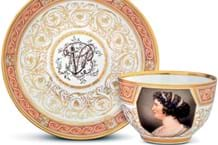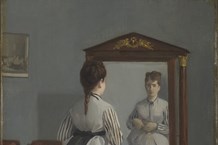In addition to the decision in September to refuse nearly all current and future applications for the export of old rhinoceros horn sold in the UK, it is now also illegal to sell or advertise for sale any rhino horn work of art unless specific written clearance has been given by the UK CITES Management Authority.
Working closely with the British Art Market Federation, DEFRA believe they have come up with a 'prior approval' solution that need not prove too onerous.
Before accepting a rhino horn product for sale, and certainly before placing such an item in a shop, saleroom or catalogue, dealers and auctioneers should download and complete one of two checklists (one for carved rhino horn items such as libation cups and one for uncarved, mounted horns) on the Animal Health website (see http://www.defra.gov.uk/animalhealth/CITES) and receive the official response granting the authority to sell.
The whole process can be completed by email and should take no longer than five days. Permissions to sell will be uniquely numbered which will enable the seller to quote the number in the sales description thus avoiding any further queries as to the legality of the item.
Many auctioneers who have sold rhino horn 'big game' trophies will already be familiar with this process (given the lack of clarity on the definition of worked/unworked items) but it is now a legal requirement.
John Hounslow, head of UK CITES management authority, told ATG: "It is important to obtain this approval in advance as not only will you be possibly committing a criminal act without it, but if an overseas buyer subsequently applies for a re-export permit [for a Chinese carved rhino horn libation cup] without being able to quote the sales approval number the re-export application will be refused."
This stricter measure for rhino horn does not affect other antique items such as scrimshaw, ivory figurines, tortoiseshell items etc which, if worked and pre-1947 (i.e. the CITES material was both acquired and worked pre-1947), can be sold without specific approval from the CITES Management Authority.
DEFRA have issued the new guidelines with immediate effect in a bid to curb the market for rhino horn trophies, which the authorities believe is fuelling the illegal trade in Far Eastern homeopathic remedies. "The Minister for Biodiversity's decision to impose a partial ban was based on the fact that he no longer wished the UK to be tarred with the label of fuelling illegal markets albeit with legally acquired products," said Mr Hounslow.
Export licences will only be granted in future if buyers and sellers meet at least one of the following criteria:
• The item is part of a genuine exchange of cultural goods between reputable institutions (i.e. museums).
• The item has not been sold and is an heirloom moving as part of a family relocation.
• The item is part of a bona fide research project.
• The individual item is of such artistic value that it exceeds its potential value as a raw material on the illegal medicine market.
By Roland Arkell




